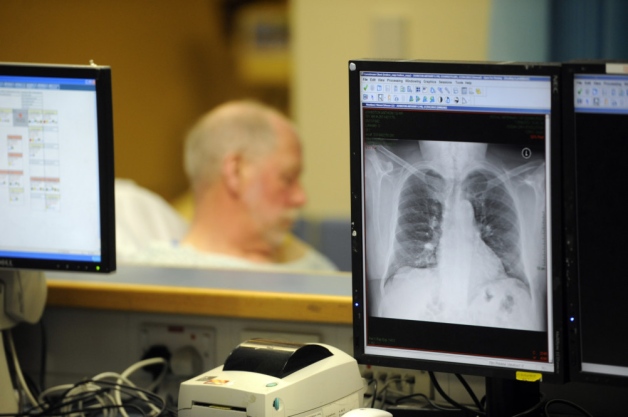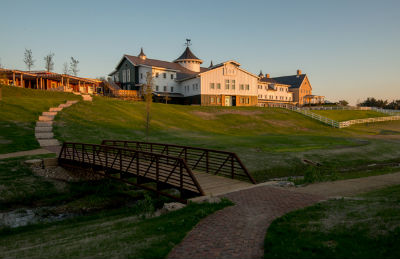Natural Resources and Endangered Species Research and Support at Fort Hood, Texas
This is a request for Statements of Interest only.
Statements of Interest will then be evaluated and full proposals will then be requested.
Please see related documents section of this announcement for submission requirements for STATEMENTS OF INTEREST.
Many of the land bases where US Army installations reside are ecologically significant – providing refuge for a large number of the nation's threatened and endangered plants and animals.
The benefits of biodiversity to the public and the environment have long been recognized and the Army’s role as land managers can influence the floral and faunal diversity both within the installation and on nearby lands.
To fulfill long-term mission requirements, the military must achieve environmental objectives of sustainability of training lands and full compliance with conservation requirements under law.
The Army is committed to maintaining its role as a national leader in the conservation and management of sensitive natural resources on Army lands.
Fort Hood currently supports the heaviest Army training activity as the only installation providing training facilities for the equivalent of two mechanized divisions as well as support units.
Within this military context, Fort Hood is also home to large numbers of a federally endangered bird species (golden-cheeked warbler), a recently delisted species (black-capped vireo), numerous migratory bird species, and at-risk plant.pollinators.
Fort Hood must balance military training requirements with species conservation requirements imposed by the Sikes Act, Endangered Species Act (ESA), and Migratory Bird Treaty Act (MBTA).
Work under this proposal will provide logistical and research support to 1) summarize and analyze previously collected data to determine distribution, abundance and population status of endangered and migratory bird species, 2) monitor demographic parameters for golden-cheeked warblers and black-capped vireos, 3) survey and monitor migratory bird species, 4) survey and monitor at-risk pollinator species, 5) survey and manage for invasive feral hogs and 6) support natural resources outreach activities at Fort Hood, Texas.
Statements of Interest will then be evaluated and full proposals will then be requested.
Please see related documents section of this announcement for submission requirements for STATEMENTS OF INTEREST.
Many of the land bases where US Army installations reside are ecologically significant – providing refuge for a large number of the nation's threatened and endangered plants and animals.
The benefits of biodiversity to the public and the environment have long been recognized and the Army’s role as land managers can influence the floral and faunal diversity both within the installation and on nearby lands.
To fulfill long-term mission requirements, the military must achieve environmental objectives of sustainability of training lands and full compliance with conservation requirements under law.
The Army is committed to maintaining its role as a national leader in the conservation and management of sensitive natural resources on Army lands.
Fort Hood currently supports the heaviest Army training activity as the only installation providing training facilities for the equivalent of two mechanized divisions as well as support units.
Within this military context, Fort Hood is also home to large numbers of a federally endangered bird species (golden-cheeked warbler), a recently delisted species (black-capped vireo), numerous migratory bird species, and at-risk plant.pollinators.
Fort Hood must balance military training requirements with species conservation requirements imposed by the Sikes Act, Endangered Species Act (ESA), and Migratory Bird Treaty Act (MBTA).
Work under this proposal will provide logistical and research support to 1) summarize and analyze previously collected data to determine distribution, abundance and population status of endangered and migratory bird species, 2) monitor demographic parameters for golden-cheeked warblers and black-capped vireos, 3) survey and monitor migratory bird species, 4) survey and monitor at-risk pollinator species, 5) survey and manage for invasive feral hogs and 6) support natural resources outreach activities at Fort Hood, Texas.
Related Programs
Basic, Applied, and Advanced Research in Science and Engineering
Department Of DefenseObtain Full Opportunity Text:
Bureau of Educational and Cultural Affairs Organizational Funding Opportunities
Additional Information of Eligibility:
This opportunity is restricted to non-federal partners from the Great Rivers and Great Plains Cooperative Ecosystems Studies Unit (CESU).
Full Opportunity Web Address:
See Related Documents
Contact:
Agency Email Description:
Angela.D.Holcomb@usace.army.mil
Agency Email:
Date Posted:
2021-04-09
Application Due Date:
Archive Date:
2021-06-30
Social Entrepreneurship
Spotlight
Social Enterprises: Key to Enhancing a Nation’s Health

Glasgow Caledonian University (GCU) has launched a series of noteworthy research projects to learn if social enterprises can help Scotland lose its “sick man of Europe” label and boost the nation’s overall health.

